Technological Advancements serve the purpose of making processes more efficient while empowering users to do more. Jason Valley understands this clearly and has spent his career utilizing various technologies to fix problems, optimize processes and add value to the way to people, small businesses and larger organizations do their work.
Through multiple career transitions, his focus has always remained steadily affixed on improving business processes using technology. It’s not clear whether he intended to take this path when he first started his career as an accountant, but during his time working in an insurance firm, he was given his first opportunity to optimize a process. Thrown into the deep end among I.T. professionals, Jason was tasked with relaying instructions to programmers that laid the foundation of programming code that would transform the way the company did business.
After this, Jason didn’t take long to build a reputation as the go-to person for process improvements.
Subsequent jobs in the oil & gas sector saw his team recognized as best in class globally for process optimization. In fact, they were considered the first port of call whenever the company needed to optimize new processes before launching to the rest of the world.
Since then, Jason’s personal mantra, “if you have the right tools and technology, you can be efficient”, has continued to open doors of opportunity for him. His career story is filled with lessons and advice on the invaluable improvements that can be made to businesses when they choose to invest in the right technology to solve their problems.
The importance of data in finding solutions
In 2006, Jason was headhunted by one of the largest telecommunications companies in the Caribbean region. At the time, the Telecommunication Services of Trinidad and Tobago (TSTT) was building a team of movers and shakers with experience in multi-national firms. Their aim was to revamp its business operations in the wake of the arrival of a massive competitor, Digicel.
Jason excitedly took on the role hoping to make his mark on yet another industry.
However, this move to the telecoms giant proved to be a rude awakening as he was completely ignorant of the state of operations at what he humorously called, “the Ministry of Telephone”.
One of the major red flags at TSTT was the glaring lack of visibility on the company’s performance as they lacked critical business data such as the number of customers, customer profiles, revenue, etc.
According to Data Camp, data enables organizations to make informed decisions, solve problems, improve the understanding of their performance against key targets and goals, improve processes and understand customer behaviour. Without data, your company is effectively operating by "vapse" and cannot accurately make strategic plans.
The major problem facing TSTT was that they were facing competition from a big player for the first time and they needed a strategy to deal with that. However, no data on the key business areas meant there was no way to measure previous performance against what would be taking place in the market at that time.
No customer information likely meant a limited understanding of their pain points which meant they could not be addressed to retain customers.
Jason’s task was to ensure all this data was gathered and organized in a meaningful way that could be used for strategy development.
By 2010, his work earned him the "Employee of the Year" award for the Mobile Services Division owing to his identification of multiple 8-digit opportunities for the telecommunication giant.
Using communication tech to break the status quo
In 2017, Jason and a group of close friends started the Caribbean Rum Club, a podcast aimed at giving a platform to emerging talent who were likely to be under-represented in mainstream media due to restrictive practices and gatekeeping within the industry.
The podcast served up long-form conversations with emerging talent over a glass of the best rum.
At the time, there weren’t many Caribbean podcasts on air, so this project offered a unique opportunity for diverse regional and local talent to share their stories and control their narrative. The show was a success as it filled the need for longer-form media content that could not be fulfilled on television and radio due to restrictive time slots, rules on what can and cannot be said on air, management expectations and many other reasons. Utilizing the podcast format also facilitated the creation of evergreen content that could be listened to later, an advantage that radio and television media did not possess.
Jason and his friends effectively used communication tech to break the status quo in media by creating these opportunities on a new platform. This move showed his ability to identify disadvantages in the mainstream methods of communication and being able to find an effective solution to solve the problems.
Despite working with a few rum brands and successfully hosting their first event, the team eventually disbanded and went their separate ways.
Always test even the seemingly great ideas
As a serial entrepreneur, Jason has executed several tech-related projects.
His keen eye for identifying problems in need of a solution, helped him determine that discrete GPS tracking devices would be a fantastic investment as a prospective security product to be sold to wealthy individuals who may have been at risk of being kidnapped.
The idea seemed solid.
But this project reminded him of the importance of conducting market research and tests before investing heavily in any business idea.
While Jason had invested in an assortment of discrete GPS tracking devices including pendants and watches, he also purchased tracking devices for vehicles.
Wanting to test out his business idea quickly, he contacted 20 friends spreading the word about his new business.
To his surprise, all 20 friends expressed interest in the vehicle tracking devices. Quickly understanding where the real demand and opportunity existed, Jason shifted gears into providing GPS tracking for company fleets.
As the business took off, clients demanded additional features that could check fuel levels, and mileage and provide reports on driver location throughout the day. So, the team worked on developing the product.
This tech solution helped companies to reduce overall costs on maintenance and improved operational efficiency. Drivers were more inclined to do what was expected of them as management gained greater visibility on their fleet. The overall value adds ranged from good driving behaviour, efficient job assignments and dispatch and reduced maintenance costs.
Building a database of leads to build brand awareness and facilitate new business development
One key business lesson shared by Jason was the importance of building a database of leads. It is an often occurrence that clients don’t immediately buy into your service for several reasons. Anything from not having the right amount of funds at the time to not think they need it can prevent them from subscribing to the service offered.
But “no” today does not mean “no” tomorrow.
Jason articulated the difference it made to his business to send monthly email blasts to a database of potential customers. This practice has led to at least one new customer enrolment each month. This was done using a customer relationship management (CRM) system that facilitated the manipulation of large amounts of customer data.
The system offered an efficient way to organize customer information, generate insights, and follow up on prospects that were previously uninterested in the GPS tracking subscription. This investment into his company allowed him to efficiently keep his business brand top of mind so that when customers were ready to purchase, they came to him first.
Another great idea
Jason also developed OnMarkTT, an eCommerce platform created to help businesses through tech.
In today’s world, a digital presence is a major element of business success.
The International Trade Administration of the US Department of Commerce reports that as at January 2021, Trinidad and Tobago had 1.08 million internet users, 940,000 active social media users and 1.9 million mobile connections. In 2019, online sales accounted for $500 million annually.
According to the Ministry of Trade & Industry, there are over 1200 business entities in Trinidad and Tobago engaging in some sort of e-commerce. This is a far cry from the 26,046 registered businesses in the country based on the Central Statistical Office’s latest statistics.
Several companies in Trinidad and Tobago do not have an online presence nor do they have a website that facilitates purchases. To Jason, this meant an opportunity to offer a service to them.
Recognizing the importance of a digital presence to doing business as well as the great cost involved with setting up a website. He conceptualized OnMarkTT to allow businesses to list their items online for purchase while he handled the logistics, website management, and payment processing.
How to generate client trust with tech
Innovation is no stranger to resistance as there tends to be great scepticism surrounding processes and things that people don’t understand well and after years of doing business one way. As such, building client trust became a priority to gain client buy-in to Jason’s tech-focused solutions.
He began offering clients the opportunity to experience the benefits of his product or service for free in order to aid sale conversion. To this end, he spent much time visiting wholesalers and selling products at low costs on a trial basis.
Not surprisingly, these customers had raving reviews and continually referred others to the company.
When people are used to conducting their business manually, it may take them some convincing to adopt new tech to do the work for fear that things may go wrong. But Jason firmly believes that if the value added is good, a trial works well.
How Caribbean service providers can use tech to maximize time and money
Though his personal work hasn’t quite delved into this area yet, Jason offered some stellar advice to local service providers on simple tech adoptions they can make to improve the efficiency of their service experience.
The main takeaway was to identify ways for clients to become more self-sufficient.
He advised that online consultations, bookings and payments are the best ways to do this. This allows professionals, to maximize their time, the most valuable resource they own.
Online bookings allow one to track the number of booked appointments while aiming to fill one’s calendar and maximize revenue.
A full calendar is a tell-tale sign that your service is in high demand. As such, considerations for price increases can be made from this point until the point of diminishing returns.
He also suggested distinguishing between online and in-person consultations in one’s pricing as this can also go a long way to improve efficiency.
Conclusion
Jason Valley is a trailblazer with a passion for using tech solutions to improve business efficiency. He understands the importance such changes can make to the overall value companies offer to their clients and has committed his life to conceiving projects of this nature. His story offers key lessons that can give most entrepreneurs a head-start into doing good business including the importance of idea testing, cultivating a database of prospects and responding appropriately to the market and customer demands and offering free trials to allow prospects to experience the impact of tech additions can have on their processes. Caribbean entrepreneurs would benefit greatly from adopting tech solutions to enhance the overall quality of service and product delivery, to offer clients the best possible.

